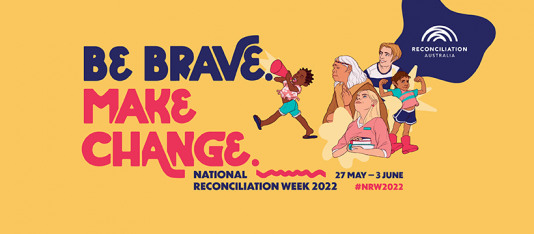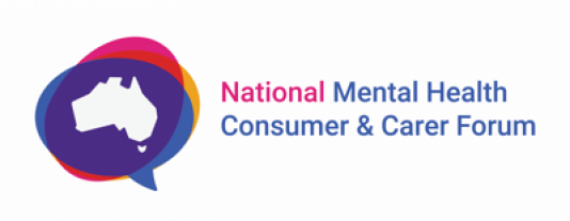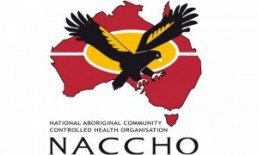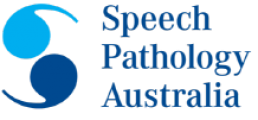CEO Update from Mental Health Australia: A time of historic, positive change
 | ||
A time of historic positive changeI am honored that Leilani Darwin, Founder and CEO of First Nations Co. has written and spoken for and to us all this week. | ||
Leilani is a Quandamooka woman who lives in Brisbane. She is well known within the sector for her work and leadership in Suicide Prevention and Mental Health; this has been built from her own personal lived experience of losing many loved ones to suicide and her own mental ill-health. Leilani has also worked with a broad range of stakeholders and government agencies in suicide prevention. Of particular note, she was an expert Advisor to Christine Morgan in her role as Suicide Prevention Advisor to the Prime Minister. She is also the Chair of the Indigenous Advisory Board for Lifeline Australia. Leilani was also integral in setting up the Aboriginal and Torres Strait Islander Lived Experience Centre at the Black Dog Institute. This year, Leilani also won the Queensland suicide prevention Australia award for priority populations. | ||
What an absolutely historic time in this country. With the new Labor Prime Minister elected by the people, what changes and outcomes will we see in the mental health sector? Firstly, as an Aboriginal woman I can’t begin to share with you all the overwhelming joy that I have in knowing that finally, Australia will have an opportunity to recognise the First Nations people of this country. This is very much enshrined in the movement of the Uluru Statement from the Heart and the need to have a Voice to Parliament through Constitutional recognition. For far too long our self-determined leadership and voices haven’t always been included in key policy and reform on issues that directly impact our families and communities. As I said earlier this year at the launch of the Close the Gap Annual Report and campaign, the past is the past, however, until we recognise it and acknowledge the impacts on First Nations people we will continue to be impacted by poor health outcomes, poor mental health and social and emotional wellbeing. Now is the time to act, to understand and educate yourself on the impacts of mental ill health on our people. For many years I have made conscious decisions to step up, to be brave and share my lived and living experience of mental ill health and suicide. For decades my people have been tied up in a system of injustice, racism and services that just don’t focus on or consider our culture, our language, our collective care and connection. Add to this the simple fact that even in today’s world we are dying far earlier and at higher rates then other Australians, through co-morbidity and poor health outcomes, through suicide and through an intergenerational trauma and pain that exists and impacts us. This year, last year and many other times I have been failed – both personally and on behalf of my most precious treasure on this earth, my daughter – when we have tried to access and engage with appropriate mental health support and care. Over the next three years, our country needs to come together and make collective decisions with the inclusion of people who have lived experience to address these very serious issues. Our Elders and our leaders have fought courageously and without hesitation to bring us to this point in time. A time when we can and will be loud and proud in ensuring a brighter future and focus for our young ones and future generations. We are still here, we are still standing for the tenacious battles won, yet the systemic failures can and will be addressed by inclusion, governance and leadership of First Nations people. Together we ask you to be present, to join as we shift the current trajectory of mental illness in our country. I won’t be silenced and I will continue to speak my truth, I ask you to open your heart and minds as we walk and work together.
Leilani Darwin Founder and CEO, First Nations Co. | ||
Mental Health Australia welcomes the incoming GovernmentThis week, we have written an Incoming Government Brief from the sector, which provides strategic, political and fiscal context for the following opportunities the Australian government may wish to seize within its first 100 days. This will be accessible on the Mental Health Australia website next week Labor’s commitments across health, mental health, housing, aged care, women’s safety, First Nations health and recognition, disaster resilience, the cost of living, and employment security will all improve Australian’s mental health and wellbeing. We have also written to the incoming Prime Minister, ‘Teal’ Independents and the Greens to highlight some of the key issues in mental health facing their constituents. We look forward to working together to seize the opportunities to fix Australia’s broken mental health system, and we have offered to brief them on the context of Australia’s mental health system. | ||
 | ||
Research into mental health challenges during COVID-19Researchers from Monash University and the National Mental Health Consumer and Carer Forum are seeking participants to complete a survey about Family experiences supporting people with mental health challenges during COVID-19 in Australia. Please feel free to disseminate this survey through your own networks. If you would like more information, please email caroline.walters@monash.edu Take survey | ||
My Diary Next weekOn Monday there is a Reconciliation Day holiday in Canberra. On Wednesday I will join a panel as part of the program in Brisbane for the MIFA Mental Health Reforms Roundtable | TIME TO ACT: A National Psychosocial Support Program On Thursday I have a meeting with the AICD to talk about opportunities to support members in governance training, and later we have a local Reconciliation celebration at our office. | ||
 Call for examples of best-practiceOne of the best ways to help services meet the needs of multicultural Australians is to follow examples of best practice. The Embrace Project is collecting examples of providers who have policies and methods in place to ensure they are culturally responsive, inclusive and diverse in their services. Submit your best-practice example | ||
Featured Members | ||
 National Aboriginal Community Controlled Health Organisation (NACCHO) is the national peak body representing 143 Aboriginal Community Controlled Health Organisations (ACCHOs) Australia wide on Aboriginal and Torres Strait Islander health and wellbeing issues. |
|
|
Speech Pathology Australia is the national peak body for speech pathologists in Australia. Speech pathologists are the university-trained allied health professionals who specialise in diagnosing and treating communication and swallowing problems (dysphagia). | ||
Send us your news, events, and job vacanciesCommunicate your news, job vacancies, or upcoming events to more than 5,000 people in the mental health ecosystem weekly. Mental Health Australia members are invited to send us news, announcements, job vacancies, events or other notices for inclusion in the Weekly CEO Update newsletter. To do so, simply fill out this form by COB each Thursday for your notice to appear in the newsletter. | ||
Mental Health News | ||
Mental Health Australia welcomes and congratulates the incoming Albanese GovernmentMental Health Australia CEO, Dr Leanne Beagley says Labor’s commitments across housing, aged care, women’s safety, First Nations health and recognition, disaster resilience, the cost of living, and employment security will all improve Australian’s mental health and wellbeing. Read more | ||
Doctors for the Environment believe climate was decider for voters in AustraliaNational Chair of Doctors for the Environment, John Van Der Kallen said climate change is now a deciding issue for Australian voters from all sides of politics. “I think we see this in the results last night,” Dr Van Der Kallen said. Doctors have been extremely concerned about the health of all Australians in a hotter and potentially wetter nation, especially since the fires of 2019/2020 and the floods this year in Queensland and New South Wales. “Climate change is the greatest threat to health this century and we are already seeing the health impacts of this firsthand on the front line in GPs’ rooms and in hospital emergency departments,” he said. Read more | ||
New release from the Australian Institute of Health and Welfare: Palliative care services in AustraliaPalliative care aims to prevent and relieve suffering and improve the quality of life of people (adults, children and their families) facing problems associated with life-limiting illness. Palliative care can be delivered by a wide range of health and community providers, is not limited to any specific condition, can be delivered at any stage of illness, and can accompany curative treatments. With an ageing and growing population, it is projected that the demand for palliative care and end-of-life care will rise substantially. Read more | ||
| New nationwide Indigenous Helpline | ||
For the first time, First Nations people across Australia will have access to a culturally safe, dedicated, 24/7 crisis hotline. 13 YARN | ||
Mental Health Opportunities and Resources | ||
Understanding Loneliness and Mental HealthLived Experience Australia is collaborating with the Royal Australian and New Zealand College of Psychiatrists’ Community Collaboration Committee to conduct this survey so that we can understand consumer and carer experiences of loneliness. Take the survey | ||
 | ||
BEING – Mental Health Consumers is pleased to invite peer workers across NSW to join our inaugural peer worker professional development and networking event: BEING Connected. Held over two days – Monday 27 & Tuesday 28 June 2022, at the Sheraton Grand Sydney Hyde Park – this event provides an opportunity for NSW peer workers to learn about professional development and the benefits of connecting with peers. There will be multiple guest speakers from throughout the mental health and suicide prevention sectors, including NSW Mental Health Commissioner Catherine Lourey and former NSW Mental Health Commissioner John Feneley (plus more to be announced). | ||
The 30th Annual Mental Health Service Awards of Australia and New ZealandThe 30th Annual Mental Health Service Awards of Australia and New Zealand deadline has been extended!Award entries close June 2nd. These prestigious Awards recognise excellence and achievement in mental health, showcasing work in research, evaluation, services and programs and wellbeing in the workplace. This is a great opportunity to share and showcase the work you and your organisation are doing in mental health. | ||
NT Suicide Prevention Community GrantsThe grants aim to empower non-government organisations and community members, who can apply for funding between $500 and $10,000 to raise awareness about suicide and suicide prevention. Applications will be considered for activities and projects that progress local actions in a number of areas, including addressing stigma and discrimination, building inclusive communities and strengthening community resilience, and reducing exposure to trauma (violence, sexual abuse, alcohol and drug use. Applications close: 31 May 2022 | ||
WA Mental Health Week 2022 Community Grants ProgramMental Health Week 2022 will run from 8 – 15 October and is coordinated by the Western Australian Association for Mental Health (WAAMH), with support from the WA Mental Health Commission. This year’s theme is, ‘Where we live. How we live. What we’ve lived’, and grants are being offered across four areas: Events, Education, Experience, and Equipment. Applications close: 30 June 2022 |




